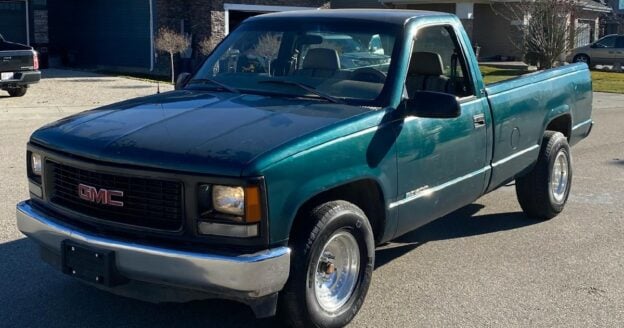Purchasing a repossessed car can be a great way to save money, but it comes with its own set of challenges. Unlike new cars, when buying repossessed vehicles, you might find a history of repairs, accidents and maintenance issues that potential buyers need to consider. To help you make a more informed decision and secure a reliable vehicle, here’s a list of the top 10 things to check when buying any type of used car.
1. Vehicle History Report When Buying a Repossessed Car
Start by obtaining a vehicle history report from services like Carfax or AutoCheck. This report can provide critical information about the car’s past, including accident history, ownership history and whether it has been involved in any major incidents like flooding or fires. This is often the only way to know a repo car’s history.
2. Exterior Condition
Schedule a time to see the vehicle. Inspect the car’s exterior thoroughly. Look for rust, paint chips and scratches, as well as signs of major repair or body filler use. Check the condition of the tires, including tread depth and even wear. Don’t forget to look under the car for any signs of leaks or rust.
3. Interior Condition
Examine the interior for wear and tear. This includes checking the upholstery for rips, stains or bad odors. Test all electronic components like the air conditioning, radio and all lights. Make sure the dashboard indicators function correctly when you start the car. If you notice any issues, which is not uncommon with repos, take note of them. The bid should reflect the work the vehicle needs.
4. Engine Condition
The engine is the heart of the car, so it’s crucial to check for leaks, rust, oil level and condition. Start the engine and listen for any unusual noises such as knocking or hissing, which could indicate mechanical problems.
5. Test Drive
A test drive can reveal many issues that you might not notice by just inspecting the car. Pay attention to how the car handles, any unusual engine or brake noises and whether all the controls (like turn signals and wipers) work properly. Please note that many repo cars cannot be test driven for liability reasons. If this is the case, you can at least see the car in person, start it up and inspect it.
6. Mileage
While lower mileage might seem like a plus if buying a repossessed car, it’s important to consider how those miles were accumulated. Cars with higher mileage from highway driving are generally in better condition than those with lower mileage from short trips or city driving.
7. Maintenance History
Ask for the car’s maintenance records to see if the previous owner took good care of it. Regular oil changes and checks are good signs that the car was well-maintained. However, it’s uncommon for repo cars to have this information. The bank is considered the “new” owner, and they rarely know the vehicle’s history. Err on the side of caution and assume that the car wasn’t being maintained.
8. Frame Issues
Check the car’s frame for any signs of damage or repairs, which can affect the vehicle’s safety and alignment. Look under the vehicle for any signs of welding or new parts attached to the frame, which might indicate a past accident.
9. Under the Hood
Inspect under the hood for worn belts and hoses. Check the radiator, battery and fluids. Fluids should be clean and filled to the appropriate levels. Cloudy or gritty oil, for example, can be a sign of serious engine issues.
10. Professional Inspection
Finally, always consider getting a pre-purchase inspection from a trusted mechanic if you’re buying a repossessed car. This can be a crucial step in identifying potential problems that might not be visible to the untrained eye. Even though you may be getting a great deal, the car is likely to need some repairs and maintenance.
By carefully checking these areas, you can better assess the condition of a used car and avoid purchasing a vehicle that could cost you more in repairs than it’s worth. Remember, taking the time to perform these checks can help ensure you make a wise investment. To shop for repossessed vehicles in your area, visit RepoFinder.com today.

